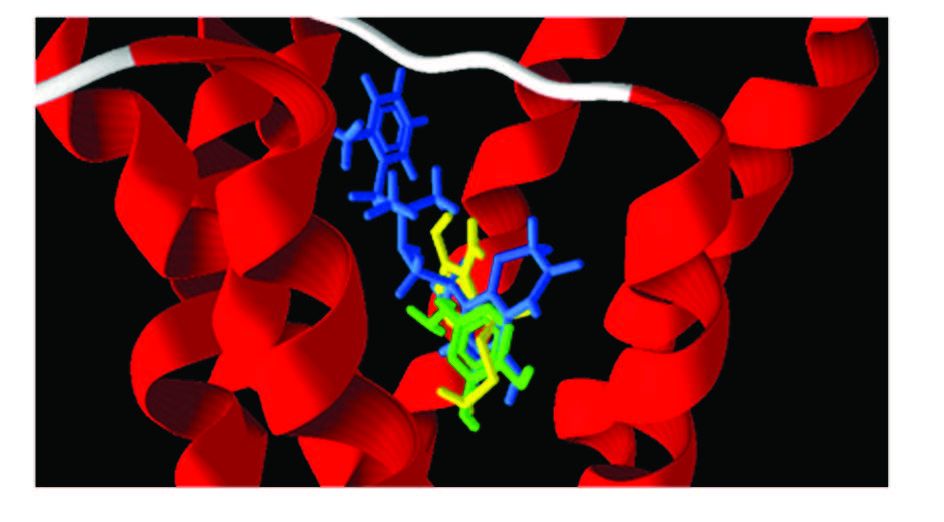
Research
All T cells adaptive immune responses, from tolerance to immunity, depend on MHC-restricted presentation of processed peptides. Using advanced mass spectrometry techniques my laboratory is interested in characterizing the MHC-immunopeptidome in physiological and pathological conditions and its immunological relevance to T cell differentiation, clonal expansion and overall disease outcome. Using and integrated approach that combine cell biology, biochemistry and biophysics we are addressing important questions such as: (i) how the epitope copy number displayed by the MHC II-peptidome contributes to the balance between tolerance and autoimmunity: (ii) how “non classical” antigen processing pathways observed during inflammation and cancer generate MHC II neoepitopes and contribute to the disease outcome, (iii) how the redox conditions observed during inflammation and cancer generate amino acids post-translational modifications, such as carbonylation, citrullination, oxidation, to name few, which contributes to the formation of MHC II neo-epitopes.
Figure 1: Post-translational oxidative modifications on MHC-II molecules change peptide binding selection and the overall composition of the MHC-ligadome.

Additional ongoing research relates to the development of small molecules which inhibits pro-inflammatory pathways in an autoimmune disease therapeutic setting.
Figure 2: Molecular docking of 3HKA analogs in the trace amine receptor 1.

Current Projects:
- MHC-II ligandome
- Autoimmunity
- Inflammation
- Small molecules therapeutics
Bio
Dr. Laura Santambrogio received her M.D. PhD from Padua University in 1993 and trained as a post-doctoral fellow at Harvard Medical School under the mentorship of Jack Strominger. She was recruited at Albert Einstein College of Medicine with an Irene Diamond Professorship in Immunology and in 2019 moved to Weill Cornell where she held the position of Associate Director of Precision Immunology in the Englander Institute of Precision Medicine, Professor of Radiation Oncology, Physiology and Biophysics.
Distinctions:
- Irene Diamond Assistant Professor of Immunology
- 2022 Amaranth prize for more impactful aging research
Selected Publications:
Santambrogio L, Autoimmunity to the modified self. Science 2023 Mar 17;379 (6637):1092-1093. doi: 10.1126/science.adg3925.
Santambrogio L, Marrack P. The broad spectrum of pathogenic autoreactivity. Nat Rev Immunol. 2022 Nov 23:1-2. doi: 10.1038/s41577-022-00812-2.
C. C. Clement, P. P. Nanaware, T. Yamazaki, M.P. Negroni, K. Ramesh, K. Morozova, S. Thangaswamy, A. Graves, H.J. Kim, T.W. Li, M. Vigano’, R.K. Soni, M. Gadina, H. Y. Tse L. Galluzzi, L.A. Roche, L. K. Denzin, L.J. Stern, L. Santambrogio. PDIA3 epitope-driven immune autoreactivity contributes to hepatic damage in type 2 diabetes Science Immunology 2022 Aug 12;7(74):eabl3795. doi: 10.1126/sciimmunol.abl3795.
C. C. Clement, P. P. Nanaware, T. Yamazaki, M.P. Negroni, K. Ramesh, K. Morozova, S. Thangaswamy, A. Graves, H.J. Kim, T.W. Li, M. Vigano’, R.K. Soni, M. Gadina, H. Y. Tse L. Galluzzi, L.A. Roche, L. K. Denzin, L.J. Stern, L. Santambrogio. Pleiotropic consequences of metabolic stress on the major histocompatibility complex class II molecule antigen processing and presentation machinery. Immunity 2021 Apr 13;54(4):721-736.e10. doi: 10.1016/j.immuni.2021.02.019.
Wan X, Zinselmeyer BH, Zakharov PN, Vomund AN, Taniguchi R, Santambrogio L, Anderson MS, Lichti CF, Unanue ER. Pancreatic islets communicate with lymphoid tissues via exocytosis of insulin peptides. Nature. 2019 Aug;560(7716):107-111. doi: 10.1038/s41586-018-0341-6.
